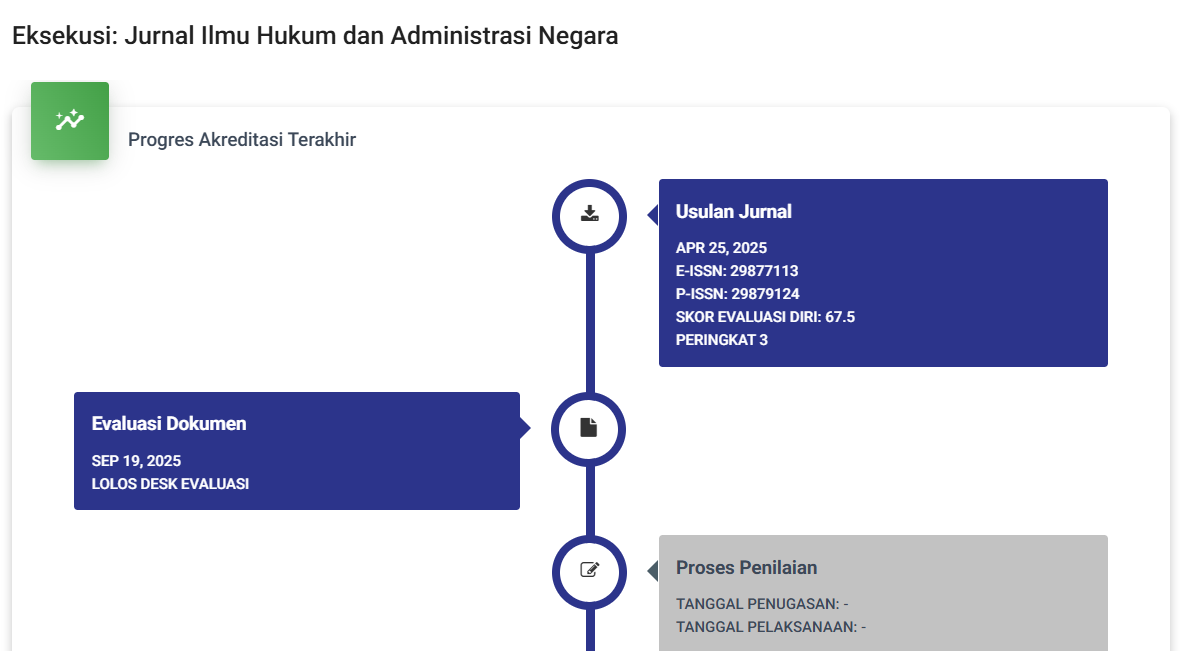Analisis Hubungan Antara Kasus Korupsi Harvey Moeis dan Setya Novanto serta Kaitannya dengan Hukum Tata Negara dan Undang-Undang NRI 1945
DOI:
https://doi.org/10.55606/eksekusi.v3i1.1667Keywords:
Corruption, Constitutional Law, Constitution of the Republic of Indonesia, Literature StudyAbstract
Corruption is an unlawful act that aims to enrich oneself, others, or a corporation, which in turn results in financial losses or has a negative impact on the country's economy. The definition of corruption itself is regulated in Law Number 31 Year 1999, which was later amended to Law Number 20 Year 2001. The harmful actions were committed by Harvey Moeis and Setyo Novanto. The losses incurred by each suspect were Rp 2.3 trillion and Rp 300 trillion, respectively. The writing method used in this article is literature study. This method can be done by collecting references consisting of several previous studies and then compiling them to draw conclusions. The corruption case committed by Harvey Moeis was related to the management of thyme commodity trading in Indonesian territory with a state loss of Rp 300 trillion, then the E-KTP case that dragged Setya Novanto's name. He is suspected of arranging for the project to be approved by the House of Representatives. Both cases violate Article 20A of Law Number 20 of 2001 and Law Number 31 of 1999 on the eradication of corruption. This case calls into question the accountability of public officials, especially in the case of Setya Novanto, the authority of state institutions over this case and the rule of law upheld in Indonesian constitutional law.
References
Ali, M., & Yuherawan, D. S. B. (2020). Delik-Delik Korupsi (Tarmizi (ed.)). Sinar Grafika.
Atmaja, Z. S., Herdani, K. N., & Santoso, G. (2022). Analisis Hukum Atas Implementasi UUD Negara Republik Indonesia dalam Penanganan Kasus Korupsi di Indonesia. Jurnal Pendidikan Transformatif (Jupetra), 1(2), 127–136.
Farisa, F. C. (2023). Kisah Setya Novanto Minta Perlindungan Jokowi Saat Terjerat Kasus E-KTP. Kompas.Com.
Hadi, S., Thahjono, H. ., & Palupi, M. (2020). Systematic Review: Meta Sintesis Untuk Riset Perilaku Organisasi. In Vivavictory.
Hadji, K., N, L. A., A, I. N., Patmawati, N., K, K. N., S, C. F., & H, S. A. (2024). Optimalisasi Kinerja Hukum Tata Negara Melalui Lembaga KPK Dalam Upaya Mengurangi Angka Korupsi: Analisis Implementasi Strategi Penegakan Hukum Di Indonesia. JURNAL ILMU HUKUM DAN TATA NEGARA, 2(2), 116–128. https://doi.org/10.55606/birokrasi.v2i2.1174
Junai, D., & Tamur, M. (2020). Pengantar Meta Analisis. UPI Press.
Nur, F. M. (2024). Duduk Perkara Kasus Dugaan Korupsi Timah yang Seretv Harvey Moeis. Tirto.Id.
Pahlevi, F. S. (2022). Pemberantasan Korupsi di Indonesia Perspektif Legal System Lawrence M. Freidmen. El-Dusturie, 1(1). https://doi.org/10.21154/eldusturie.v1i1.4097
Putri, D. (2021). Korupsi dan prilaku koruptif. Tarbiyatul Bukhary, Jurnal Pendidikan, Agama Dan Sains, 5(2), 47–54.
Rachmawati, A. F. (2022). Dampak Korupsi dalam Perkembangan Ekonomi dan Penegakan Hukum di Indonesia. Eksaminasi : Jurnal Hukum, 1(1), 12–19.
Riyanto, R. K., Istimeisyah, D., Arjuna, M. G. S., & Hasnakusumah, R. T. (2024). IMPLIKASI EKSISTENSI UU PERTAMBANGAN DALAM UPAYA PENYELESAIAN PERMASALAHAN PERTAMBANGAN ILEGAL (Studi Kasus Korupsi Tata Niaga Komoditas Timah di IUP PT Timah Tbk). Jurnal Ilmiah Penelitian Mahasiswa, 2(3), 543. https://doi.org/3025-5465
Saubani, A. (2024). Harvey Moeis Resmi Didkwa Rugikan Negara RP300 Triliun, Modus Korupsi Diungkap Jaksa. Republika.Co.Id.
Suyatmiko, W. H. (2020). Memaknai Turunnya Skor Indeks Persepsi Korupsi Indonesia Tahun 2020. INTEGRITAS: Jurnal Antikorupsi, 7(1), 161–178. https://doi.org/10.32697/integritas.v7i1.717
Vialdy, S. H., Dwiyanti, G. Y., Wulandari, E., & Agung, C. D. Y. (2022). Dilematika Korupsi Sebagai Potret Pelanggaran Ham: Kasus Korupsi E-KTP 2011-2013. Jurnal Anti Korupsi, 12(2), 17. https://doi.org/10.19184/jak.v12i2.38814
Wahyudin, Y., & Dhian. (2020). Analisis Metode Pengembangan Sistem Informasi Berbasis Website: A Literatur Review. Jurnal Interkom: Jurbal Publikasi Ilmiah Bidang Teknologi Informasii Dan Komunikasi, 15(3). https://doi.org/10.35969








